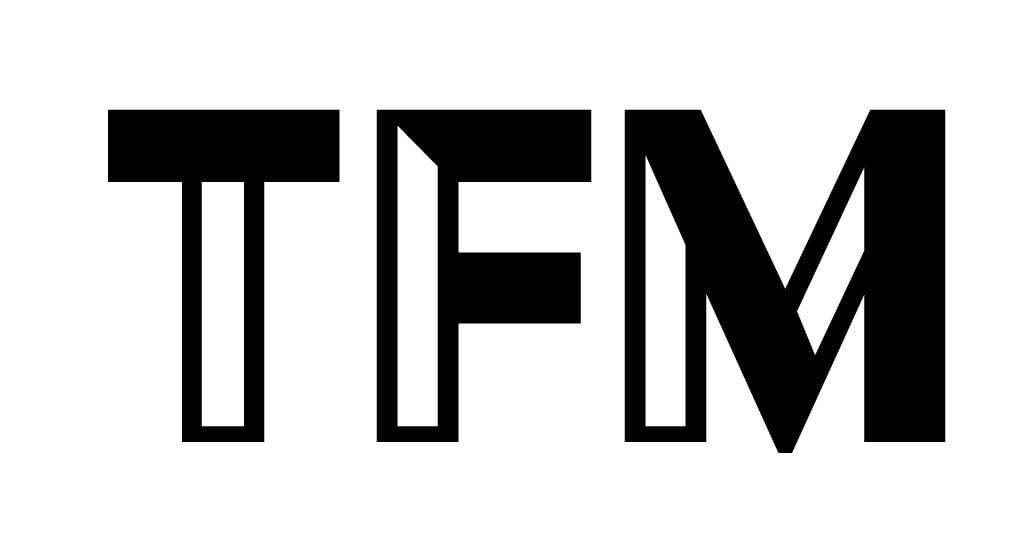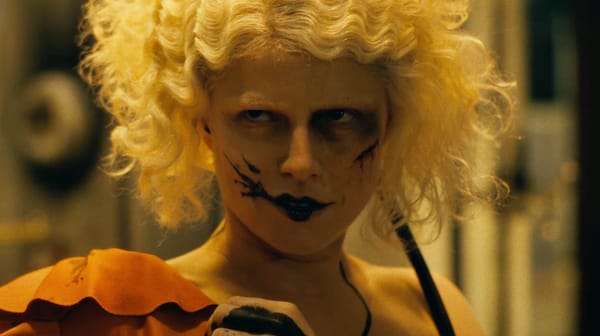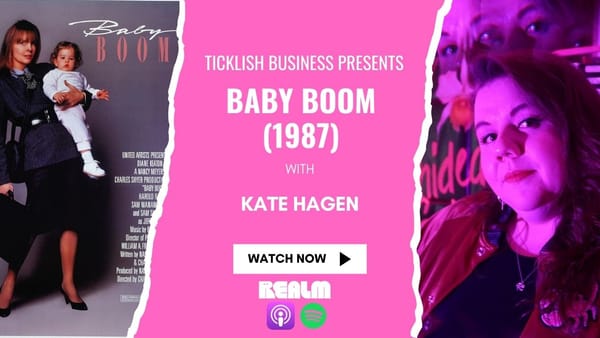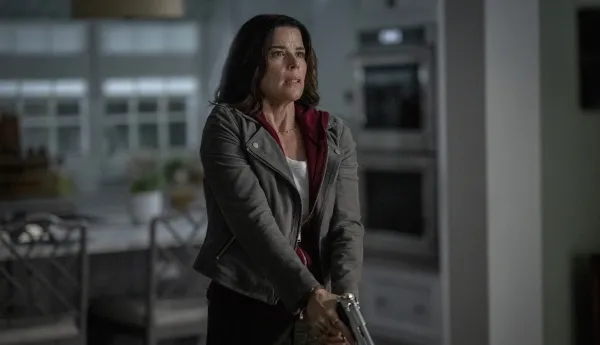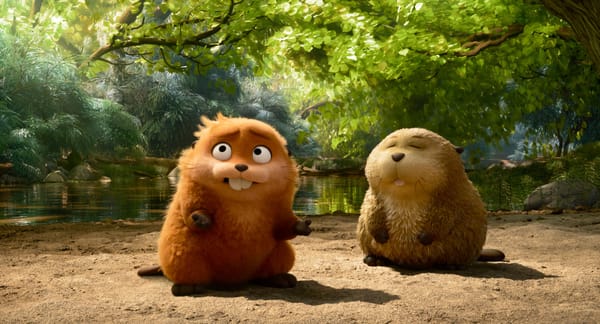'Bird' Review: Andrea Arnold Crafts Another Stunner
A dazzling lead performance elevates a story that plays on the director's familiar themes
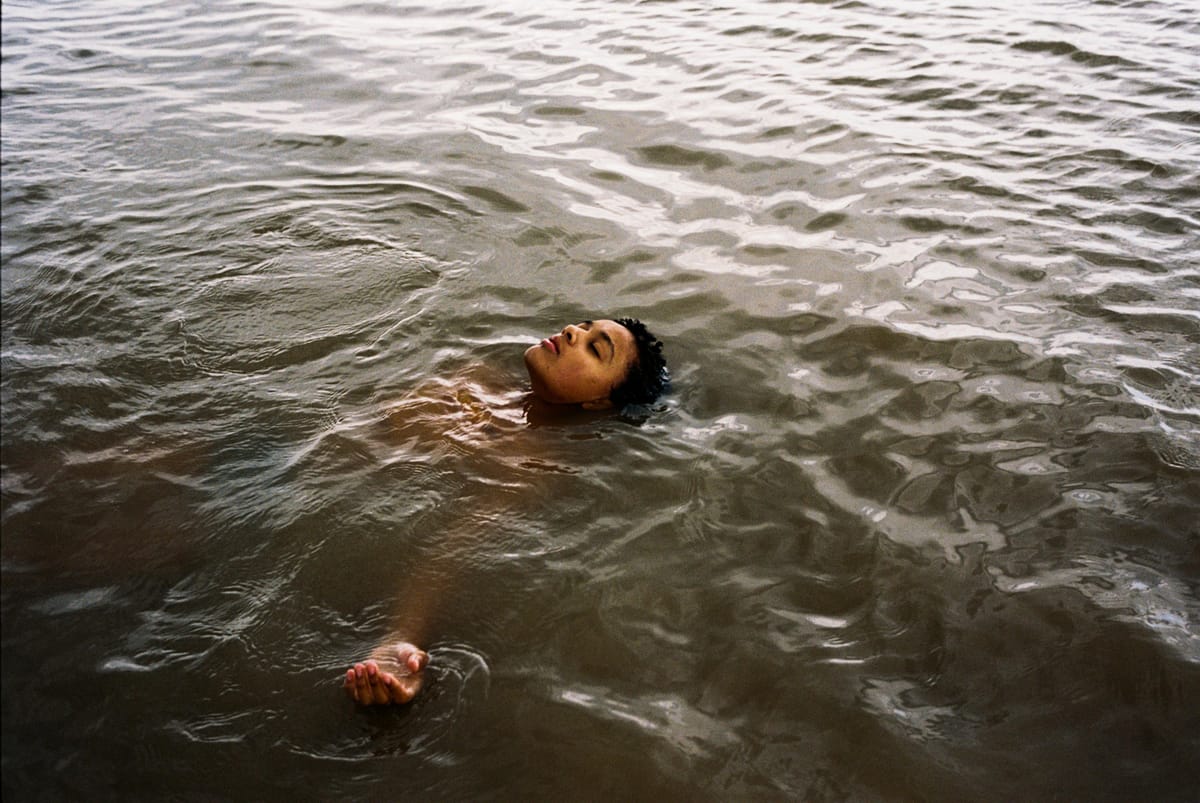
Director Andrea Arnold has been here before, telling stories about teenage girls on the verge, living in an unforgiving landscape with parents ill-equipped and unwilling to work in their best interest. But where Arnold’s previous features, Fish Tank and American Honey presented feminine sexuality, the predatory nature of men and the need to make money to get out her latest feature, Bird, injects an element of magical surrealism to everything to make a fantastical close-out to her tough girl trilogy.
This is easily Arnold’s most hopeful feature, a chaotic, beautiful exploration into the relationships between fathers and daughters, and what happens when young girls are so focused on saving others, they can’t see how to save themselves.
Bailey (Nykiya Adams) is a 12-year-old girl living with her impulsive father Bug (Barry Keoghan). A father at just 14, Bug acts more like an annoying big brother than a parental figure. When he declares he’s planning to get marry it causes Bailey to lash out and seek ways to avoid being at home. She meets the enigmatic, if bizarre Bird (Franz Rogowski), who claims he’s looking for his missing family. The pair embark on a tenuous friendship that sees Bailey discover her inner strength and the true meaning of family.
Arnold has always been a master of flipping the script on what audiences expect a British movie to look like. Gone is the cold, classy sterility of the estates seen in Masterpiece Theatre and in its place Arnold shows a diverse, in-your-face world of those who have everything and those just trying to have a little. Much like it’s title, Bird is Andrea Arnold in an airier, dare we say lighter world than her previous features. We meet Bailey amidst the hustle and bustle of Kent as her gregarious father Bug comes to take her home.
Kristomania! is a reader-supported publication. To receive new posts and support my work, consider becoming a free or paid subscriber.
Arnold has always been about showcasing class distinctions, whether that’s the council housing of Fish Tank or the American South in American Honey. Arnold’s long-time cinematographer Robbie Ryan lays it all bare in a beautiful tracking shot of Bug and Bailey on a scooter where manicured lawns naturally turn into more lower-income neighborhoods where unsupervised children flood the streets.
And the overabundance of children is important to Arnold’s narrative here, as Bailey could very well become a mother at any time. Her own father was a child when he produced Bailey and her brother and Bailey’s young mother has three children younger than her 12-year-old. It’s a landscape where, the lack of jobs and economic support for people leads everyone to get bored, have sex, and perpetuate the cycle.
But Bug swears life is going to change for everyone with the advent of his new marriage, to the harsh accented Kayleigh (Frankie Box), who also comes with her own child, and the belief that he’s found a magic “drug toad” that will produce money for them. Keoghan, who walked away from Gladiator II to star, sells the immature Bug, a man who might have had a better life if he was able to grow up a few more years. Instead, he flaunts his “dreams” to his daughter and gets indignant when the child doesn’t care. Unlike Arnold’s cruel mothers, though, Bug does try his damndest to provide some type of life for his kids.
While his life is presented as one big party — where friends drop by to listen to rap music or, in one hilarious scene, sing Coldplay’s “Yellow” to a frog — Bug is desperate to assert authority with his children. A third act moment at a train station is a moment for Keoghan to show the tenderness he brings to unlikable characters, with Bug finally able to impart the wisdom he, no doubt, hoped his own father would have given to him. At the same time, Keoghan is able to play with the levity in Arnold’s script, whether that’s a sly Sophie Ellis-Bextor dig (fans of Saltburn will bust up) or telling his kids “Sometimes I wish I didn’t have you … but I luv ya.”
Thanks for reading Kristomania!! This post is public so feel free to share it.
Arnold is well-regarded for discovering new talent and, no surprise, newcomer Nykiya Adams is a stunner as Bailey. As Bird tells her, “You’re used to sorting it out, aren’t you?” and that’s evident in Adams’ haunted eyes. Bailey has had to grow up quickly, yet Adams is still able to sell her child’s sense of wonder, seen when she’s in sweeping fields or interacting with horses. The film’s 4:3 ratio plays everything like it’s a Polaroid capturing a moment in time or, considering Bailey’s age, a TikTok video.
When Adams is opposite Keoghan she feels like an equal, matching his bluster with her own defiance. Or she’s the mother hen, protecting her younger siblings from her mother’s vicious, abusive boyfriend. It’s when Adams is opposite Rogowski that the audience gets a glimpse into who the real Bailey is: a determined, inquisitive young girl sick of having to take care of herself and he adults around her.
Bailey’s initial meeting with the enigmatic Bird is one of curiosity and apprehension. He literally skips into her life with all the inquisitiveness of an imp. Rowgowski’s wide eyes and lisping accent give him a childlike quality outside of his bird-like nature. He spends his time outside and seems to hold little past beyond a note of where his parents might live. The movie doesn’t provide easy answers on who he is and, by the third act, the audience is left wondering how much of Bird and Bailey’s interactions are fantasy or not. The third act will either confuse or enchant depending on your mileage.
Long-time, ride or die lovers of Andrea Arnold’s work will continue to find something new within the familiar confines of Bird. Nykiya Adams is a future star, if she chooses to be, and it’s fantastic seeing Barry Keoghan stand in as strong support for a newcomer. Arnold’s script is fresh and light while never forsaking on the heavy themes she’s come to be identified with. It’s a magical, hopeful experience.
Like cats? I’m currently running a GoFundMe for my cat Elliott Stabler (yep, that’s his name) who ran into some unexpected vet bills due to a recent emergency surgery. If you’re able to donate or share I’d greatly appreciate it.
